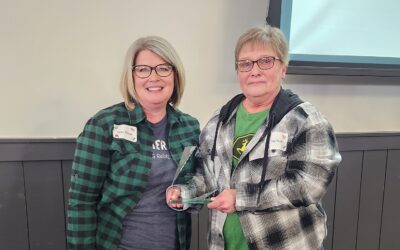And does it matter?
Do you call them “customers” or “clients”? Is there even a difference? Your answer probably depends on the relationship you have with them. And it should.
First, let’s look at the definition of the two terms. Webster’s Dictionary defines a client as “a person who engages the professional advice or services of another.” A customer, on the other hand, is defined as “one that purchases a commodity or service”.
Notice the difference?
What jumps out at me in the client definition are “engages” and “professional advice”. When someone “engages” you, it implies a deeper interaction and that there is more of a relationship between you.
Looking for professional advice? Then you’re likely a client.
The term “professional advice” is certainly not limited to just professional services. There are many businesses in many industries that are striving to offer consultative advice as they build relationships with their “clients.” If your business provides expertise – whether you run an online business for product reviews, help knitters choose the right needles and yarn, or are a resource for financial expertise (you know I had to throw banking in there) – individuals are more likely to come back to you if you are offering them a greater value than just a product. Those are your CLIENTS.
Looking to just purchase something? Then you’re likely a customer.
The two words that stuck out for me in the definition of customer are “purchase” and “commodity”. These terms are indicative of more of a transactional type of relationship as opposed to a long-term ongoing relationship. In other words, a “customer” is someone who simply purchases something from you that they could get in other places as well. Those are CUSTOMERS.
I’d be willing to bet that, whatever your business, you are trying to differentiate yourself – to build more value into your product or service offerings and give people a reason to come back to you instead of the business down the street. You don’t want to be just another place that sells widgets, you want to be the widget experts – who will help you find exactly the right widget for your needs. You want widget CLIENTS, not widget CUSTOMERS.
So, now the question is, does the language we use really matter?
I’m no psychological expert, but I think the language you use demonstrates how you feel about the people you do business with. Just like when you address someone as Mr. or Mrs. It conveys a level of respect. Referring to the individuals you serve as “clients” is a constant reminder that you have a responsibility to raise the bar in the level of service you provide.
And really the question is, what does your banker call you?
I ask this because that is how this topic came up when I sat down to write this blog. Here at Alliance Bank, we recently made the transition from the term “customers” to “clients”. And I think it’s going to make a substantial difference. We have a duty to our “clients” – to provide them with great value, exceptional service, and financial expertise. We need to appreciate that they come to us to “engage our professional advice and services.”
So, do you call them “clients” or “customers”? In most cases, I think calling them “clients” puts you in a better business mindset. I believe that the language you use is important to defining your business relationships. (But, for the record, both terms are better than calling them “Hey you!”)
Think about it. And if you’d like to discuss it, let’s talk. I always enjoy good discussions like this on small ways to influence your business.


